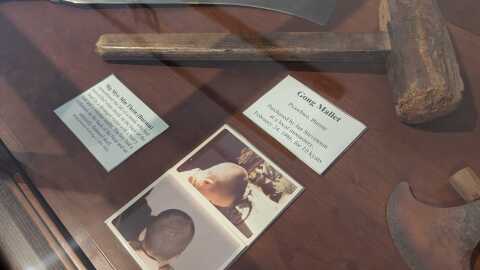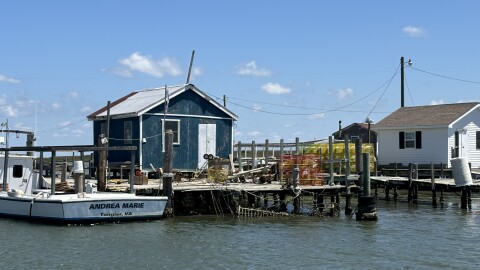Citizen science has previously spurred action by the Richmond government.
-
Groundhog Day is a “cross-quarter day” on the celestial calendar. Cross quarter days are mid-way points between the Solstices and Equinoxes. These days are associated with many familiar holidays whose astronomical roots have largely been forgotten.
-
For nearly 60 years, this office has explored the nature of consciousness.
-
Partner company hopes to have the project up and running by the 2030s.
-
A panel of experts could determine if “pattern of misconduct” occurred.
-
An ongoing review of a former state crime lab analyst’s work uncovered the error.
-
Former Science Museum of Virginia scientist captures Greek family recipes in new cookbook.
-
Early in life, the protein Reelin helps assemble the brain. Later on, it appears to protect the organ from Alzheimer's and other threats to memory and thinking.
-
Head of Harrison Family Translational Research Center discusses advances in treatment.
-
The island's lost two-thirds of its land mass since 1850 and climate change is making the problem worse.
-
Dr. Robert Winn says improved screening methods, vaccines could help wipe out the disease.
-
Have you ever wondered about the difference between millipedes and centipedes? If so, wonder no more! Entomologist Dr. Art Evans and VPM radio producer Steve Clark discuss the finer points of myriapod identification. Art also shares two stories about his least favorite among the arthropods, centipedes.
-
Physicists at the University of Virginia are building a key component to one of the largest and most complex physics experiments ever conducted in the United States. It could rewrite the physics books.
-
As Virginia tries to figure out ways to address the impacts of sea levels rising from climate change, some are concerned underserved communities might not be able to access funding to help.
-
In the last few years, we’ve been seeing a lot of news about big organizations, companies, and government facilities building solar infrastructure to support energy needs. This trend has continued to move forward with installations in many school systems around the nation.
-
Entomologist Dr. Art Evans and VPM radio producer Steve Clark discuss a common and venomous insect that is widespread in the eastern United States, the saddleback caterpillar.
-
Scientists have been studying our family and have some remarkable news to share with us this holiday season. Which new relative of ours was discovered?
-
In this episode of What’s Biting You, entomologist Dr. Art Evans and VPM radio producer Steve Clark discuss the natural history of horse flies, including the only green species that occurs in North America.
-
We’re all familiar with the rat race, right? For most folks that include the daily grind and being in the car at rush hour twice a day! The regular commute has often been known to raise stress levels in drivers making their way to their various destinations. Unlike what happens to human drivers during rush hour, scientists at the University of Richmond have been teaching rats how to drive special tiny cars to see how their stress gets lowered!
-
-
In case you had not noticed, it's cold out there again! The annual dance of warm to cold is of no surprise to us, but there are some changes happening that have scientists paying attention. In fact one way to study how our overall climate is doing is by looking at our first frost of the season. Let's kick this off with today's big question: Why study the first frost?























